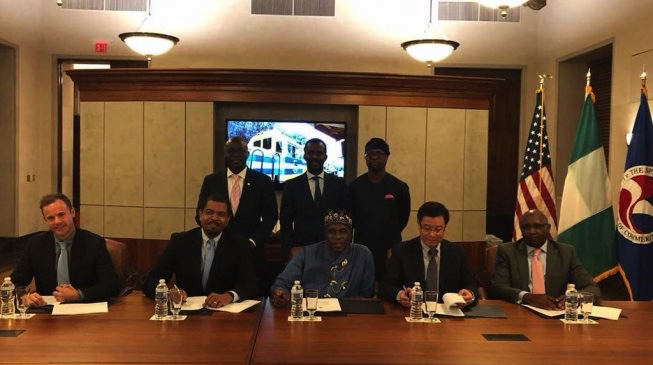
The Federal Government and four companies including General Electric (GE) and APM Terminals have signed an agreement to start the interim phase of the Nigerian narrow-gauge railway concession.
According to a statement by the Head of Communications, GE Nigeria, Yewande Thorpe, the interim phase will include “light remedial civil and track repair works” on the narrow gauge rail line.
“Additionally, a joint operation will be established between the consortium and the Nigeria Railway Corporation with a supply of 10 locomotives and 200 wagons provided to augument the existing rolling stock in Nigeria,” the statement read.
Other companies involved in the agreement are SinoHydro, an infrastructure construction company and Transnet, a logistics infrastructure management company.
The concession agreement, which will be negotiated after the interim phase, will expand the rail service to up to 200 locomotives and rehabilitate the entire rail system.
“GE is committed to the sustainable development of Nigeria and as such we are delighted to have reached this crucial stage of the project to revamp and revitalize the country’s legacy rail infrastructure system,” Lazarus Angbazo, GE CEO, said.
“The consortium looks forward to commencing execution of this interim phase with the continued support of the federal government and the ministry of transportation. As operations begin, our strong partners, such as Transnet and SinoHydro, will bring their strong operating and development skills to the forefront.”
The Minister for Transportation, Rotimi Amaechi, described the project as an unprecedented commitment on the part of the Nigerian government.
“This milestone project is an unprecedented commitment by the Federal Government of Nigeria, which, combined with the GE-led Consortium’s drive to modernizing Nigeria’s rail infrastructure, will add immense value to Nigeria’s long term economic growth and productivity.
“This will be an important catalyst for small and medium enterprises and a key provider of almost incalculable socio-economic benefits for the many Nigerian towns and villages through which the rail network passes,” Amaechi said.